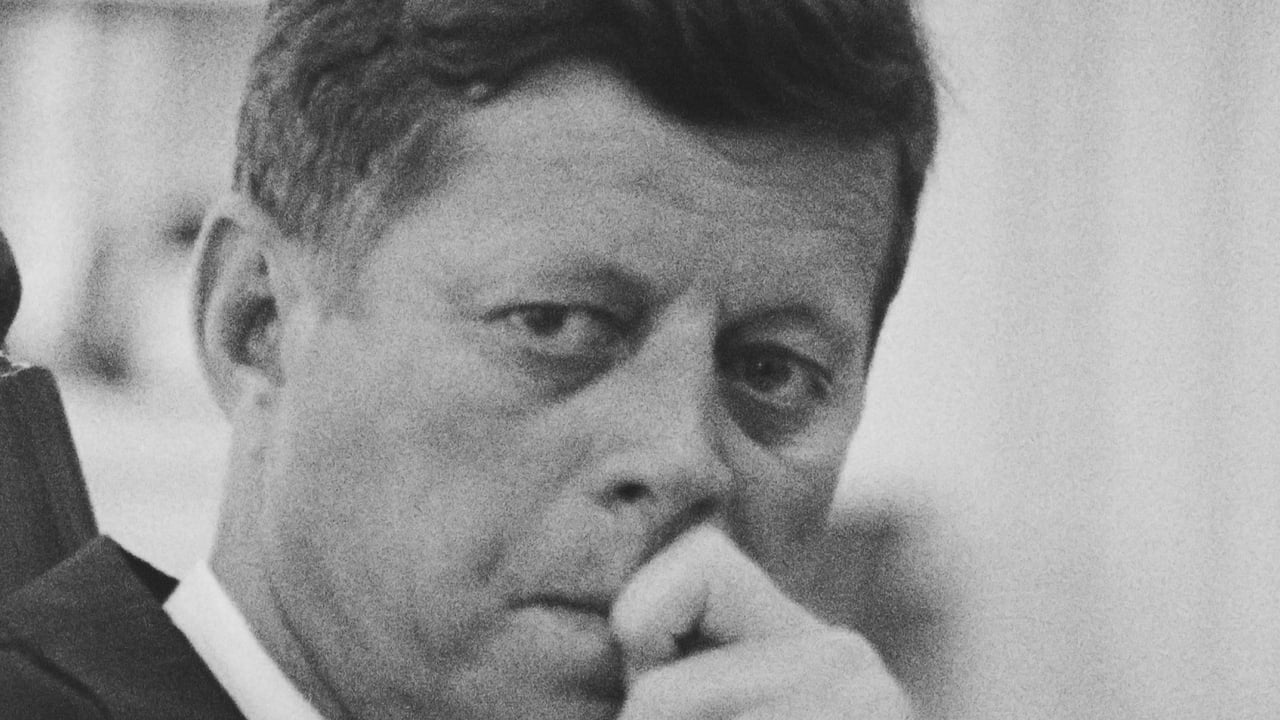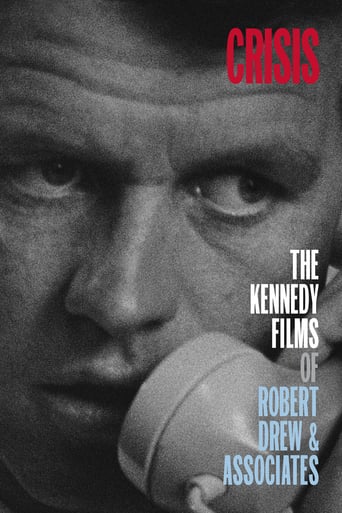

Crisis: Behind a Presidential Commitment (1963) *** 1/2 (out of 4)Robert Drew's fascinating documentary takes a look at the battle between President Kennedy and Alabama Governor George Wallace. Kennedy and his brother Robert are seen trying to get Wallace to step down and allow two black students to enroll at the University of Alabama but the governor stands to his ground. After PRIMARY, director Drew was given more access to Kennedy and it's pretty clear that the two of them knew this decision would be something big so it's pretty incredible that so much was able to be captured for this film. It runs just 53-minutes but there's certainly some drama here even though you know what happened at the school. I thought the film was extremely well-made and especially towards the end when the countdown starts on getting the two students into the school. Getting to see Robert Kennedy listening to what's going on in Alabama was pretty fascinating and you can see the drama going on just by looking at his face. Also, seeing the aftermath of the events was also rather special. It's hard to believe that this film was released just a month before Kennedy was assassinated so in some ways that gives it even more power when viewed today. It's hard to believe that this type of stuff was happening such a short time ago but this documentary does a very good job at capturing the moods at the time.
... View MoreMy grandfather told me he was involved in choreographing this momentous day in civil rights. He claims to have been one of a couple of men that served as go-betweens all night long the night before between George Wallace and Bobby Kennedy in Birmingham as they came to an agreement as to exactly how everything would play out. He was very believable as he told me about it and I know he was a close friend and worked for Wallace. If that is true it would mean the tension at that moment wasn't real but staged - at least to a degree. Watching the footage I do believe Wallace had no intention of continuing to block those poor young people.
... View MoreA truly remarkable documentary which had cameras with all the principals involved in the confrontation between Governor George Wallace of Alabama and the federal courts in letting two black students enroll in the University of Alabama at Tuscaloosa. I was awed at witnessing the planning sessions of President John F. Kennedy, Attorney General Robert F. Kennedy, General Abrams, Deputy Attorney General Nicholas Katzenbach, etc. The University had already approved the admission of the two students; Alabama was the only remaining state which had not fully integrated its university system, and Governor Wallace vowed to stand at the entrance and prevent the students from entering. What the federal government will do when that happens is the focus of the documentary? The tension is real! The drama is real! The participants are real! A most extraordinary documentary I never knew existed before it bowled me over when I saw it in 1981 in a theater, and again when recently shown on the Turner Classic Movies channel. I would have thought it could never have been made. After all, I'm sure Governor Wallace knew it was a lost cause, yet he gave permission for the film makers to film him and his staff and the confrontation. The principals were covered by four teams of film makers and most of the footage appeared unstaged. Shots of Robert Kennedy at home with his kids and George Wallace with his daughter (or granddaughter) helped to make them more human rather than larger than life. The sense of history was overpowering. A must see for anyone interested in the civil rights movement or any of the participants.
... View More